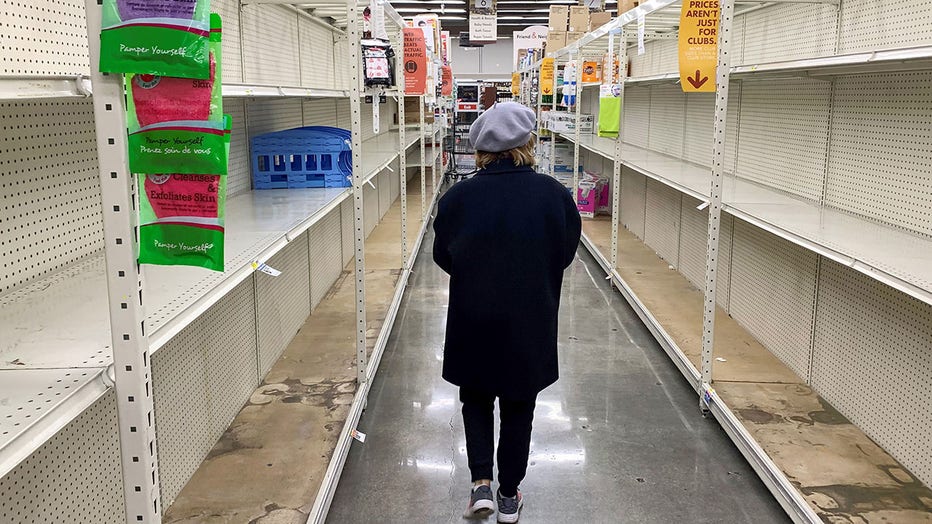Amid Michigan's second COVID-19 surge, customers resume panic-buying at stores
LANSING, Mich. - With Michigan's increase in new COVID-19 cases, it's also seeing an increase in panic-buying of large quantities of supplies at retailers around the state.
The spike has depleted some retail stores of essential supplies at a critical juncture during the pandemic.
"Michigan has an ample supply of food products and other items. But, when shoppers panic-buy products like toilet paper, paper towel, and other items, it creates a ripple effect within the supply chain," said Michigan Department of Agricuile and Rural Development Director Gary McDowell said. "Buying what your household will use for the week keeps the supply chain moving, ensures everyone has access to what they need, and allows the stores to replenish shelves for your next shopping trip."
Panic-buying became a symptom of public concern during the early stages of the pandemic. As the state restricted business and travel, customers flocked to department stores, purchasing food, water, and toiletries en masse.

A shopper walks past empty shelves normally stocked with soaps, sanitizers, paper towels, and toilet paper at a grocery store.
The widescale purchasing wasn't necessary, however. Despite the disruptions to the global supply chain regarding manufacturing, grocery stores and department outlets have maintained a solid stream of goods into the stores.
However, businesses were forced to limit customers to purchases of water and paper towels after people began buying in bulk anyway.
RELATED: What's behind the runs on toilet paper?
Business owners and government officials are seeing similar behavior playout again.
“Retailers across the state continue to work hard to restore and maintain product levels in stores to meet the demand in communities,” said William Hallan, CEO of the Michigan Retailers Association. “Consumers need to know that stores, particularly grocery stores, will remain open. Consumers should plan for essentials in weekly increments to ensure that supply levels remain steady over the next few weeks. As retailers continue to do their part to keep retail environments safe to shop, we are asking consumers to do their part by limiting quantities to ensure there is enough for everyone.”

